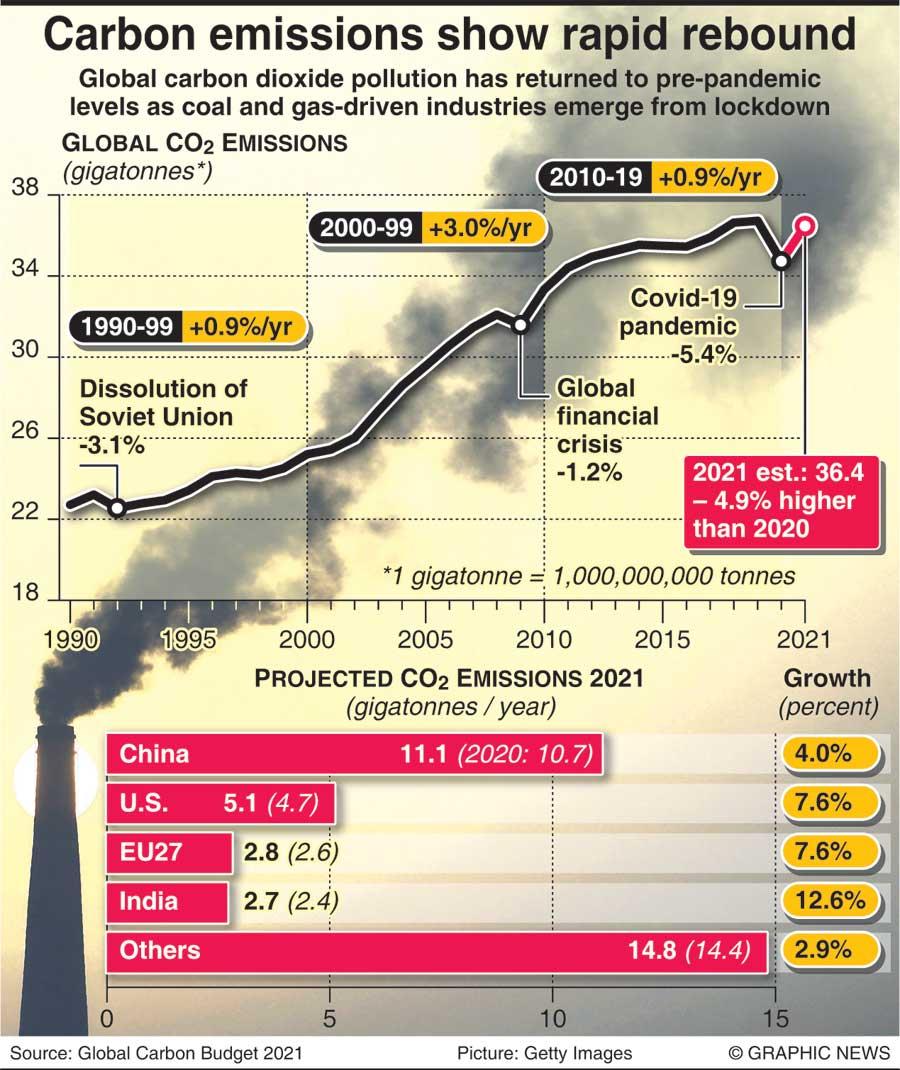Reply To:
Name - Reply Comment
About four weeks before world leaders gathered in Glasgow for a do-or-die climate summit, a little known incident had almost caused a major marine environment catastrophe of a radioactive type.
had almost caused a major marine environment catastrophe of a radioactive type.
On October 2, the United States nuclear-powered attack submarine, the USS Connecticut, collided with what the US Navy later described as an undersea mountain in the South China Sea. The incident took place close to the hotly disputed Paracel Islands which lie only 150 nautical miles from China’s Yulin submarine base in Hainan Province. The US kept the collision a top secret. None of the major news channels knew about it or they simply followed orders from the Pentagon not to publish it just as they hid the US excesses in Afghanistan, Iraq and Syria. The collision could have killed scores of US sailors and caused a maritime disaster if radioactive material had spilled into the sea.
The incident, which injured a dozen US sailors, became news only this week, almost a month after it happened, even though, five days after the incident, the US Navy Institute website carried a statement.
“The Seawolf-class fast-attack submarine USS Connecticut (SSN-22) struck an object while submerged on the afternoon of Oct. 2, while operating in international waters in the Indo-Pacific region. The safety of the crew remains the Navy’s top priority. There are no life-threatening injuries,” the statement quoted a captain as saying. “The submarine remains in a safe and stable condition. USS Connecticut’s nuclear propulsion plant and spaces were not affected and remain fully operational. The extent of damage to the remainder of the submarine is being assessed. The U.S. Navy has not requested assistance. The incident will be investigated.”
The Paracel Islands lie within the highly contested nine-dash curve that China has drawn to demarcate its territorial waters in the South China Sea. The US continues to defy China’s assertions of sovereignty over the nine-dash sea area. It regularly undertakes naval operations close to islands which China claims that it owns. The US insists that its naval vessels only operates in international waters and, therefore, do not violate any country’s territorial waters.
Beijing on Tuesday accused Washington of failing to provide timely and detailed information on the incident, complaining of a “lack of transparency and lack of responsibility from the US.”
Foreign ministry spokesman Wang Wenbin insisted that the US should come out with the truth and say whether the incident caused any nuclear leak or damage to the ocean environment.”
The South China Sea incident is a wake-up call for nations which are haggling in Glasgow over a new environment agreement. But the grim reality is that big powers won’t dismantle their nuclear arsenals or decommission their nuclear submarines. It was only recently, putting their national interest first, the US, the UK and Australia signed a nuclear submarine cooperation deal known as AUKUS. They are well aware that the deal will not only lead to nuclear proliferation and a nuclear arms race but also increase the chances of nuclear accidents. Nations tend to keep as secret underwater accidents, spillage of radioactive material from their nuclear subs and their impact on the environment. In 1985, the Soviet nuclear submarine K-431 exploded during refueling, killing ten naval personnel and causing an environmental disaster. But the news about this and similar nuclear submarine accidents surfaced only after the cold war had ended in 1991.
Geopolitics apart, these are also serious matters for the United Nations environment summits. While the 26th Conference of the Parties (COP26) in Glasgow is rightly paying its full attention to the global warming which has become an existential threat to humanity, it should not downplay or defer measures needed to deal with radioactive pollution, marine pollution, soil pollution, waste management and other threats to the environment. While nuclear wars and Chernobyl-like nuclear accidents hang over our heads like Damocles’ sword, nuclear plant sabotage by nations against their adversaries is already a frightening reality, as several accidents at Iranian nuclear sites show.
Marine pollution is another area that cannot be kept for a rainy day.
In May this year, Sri Lanka suffered its worst ever marine pollution, when a burning container ship – Xpress Pearl -- spilled its highly toxic cargo and plastic debris into the seas off Colombo. The damage to the eco system and the marine environment was immeasurable. No amount of compensation can make up for the loss.
With issues related to the Covid pandemic and a stream of political scandals dominating news in Sri Lanka, there is very little public debate or discussion over the true environmental cost caused by the Xpress Pearl marine pollution catastrophe.
It was unfortunate that the Xpress Pearl issue did not feature in President Gotabaya Rajapaksa’s Glasgow speech or in his addresses at other environment meetings in the run-up to and during the summit; although he spoke about the Government’s no-coal policy and drive to end the use of chemical fertilizer in cultivation.
Environmental issues whether it relates to marine pollution, soil pollution or global warming are interconnected. The Glasgow summit has yielded landmark agreements on deforestation and slashing methane emissions and is continuing talks on measures to limit global temperature rise to 1.5 degrees Celsius. To achieve this target, it is also important that the international community adopts a holistic approach and pays equal attention to radioactive, soil, water, air and marine pollution and other ecological issues such as waste management.
Even smoking should be regarded as a major environmental issue as it releases toxic air pollutants into the atmosphere while toxic residues in the butts cause soil pollution. A study published in 2018 by the Imperial College, London shows that the six trillion cigarettes produced yearly have a disastrous impact on the environment through climate change, water and land use, and toxicity.
“Globally, the cultivation of 32.4 million metric tonnes of green tobacco, used for the production of 6.48 metric tonnes of dry tobacco in the six trillion cigarettes manufactured worldwide , contributes almost 84 metric tonnes CO2 emissions to climate change – approximately 0.2% of the global total,” the study reveals.
As a percentage, the carbon emission from cigarettes may be a small amount, but such small figures eventually make a mountain. This is why the global campaign should go after every industry that harms the environment. The fossil fuel industry which pulls the strings of world politics is certainly one of the biggest culprits that are responsible for the global warming. A BBC story published on its website on September 20 last year, claimed energy companies tried to downplay their contribution to global warming, although their own research warned they were responsible for mass scale ecocide.
At the Glasgow summit, the private sector made pledges to achieve zero emission by 2030, but there are few if any such pledges from fossil fuel producers, who are accused of sabotaging or delaying moves to make mainstream green energy sources.
